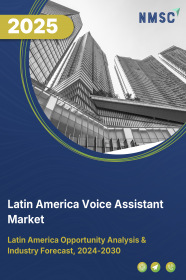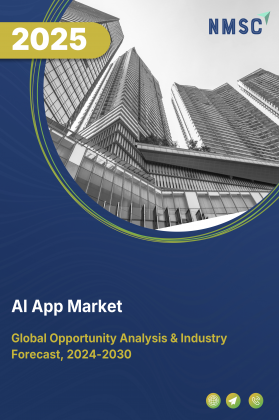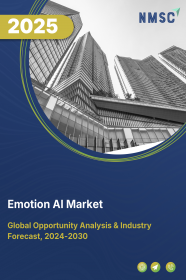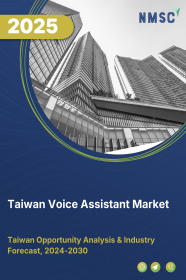
Latin America Voice Assistant Market by Offering (Hardware (Mobile Device, Smart Speaker, In-Vehicle Assistance, & Other Devices), Software (Integrated, & Standalone), and Services (Support & Maintenance, & Consulting)), by Device (Mobile, PC/Laptop, & Tablet), by Technology (Speech Recognition, & Voice Recognition), by Age Group (Millennials, Generation Z, Generation X, & Baby Boomers), and by Application (Telecom & Others)– Regional Opportunity Analysis and Industry Forecast, 2025–2030
Industry: ICT & Media | Publish Date: 17-Jun-2025 | No of Pages: 326 | No. of Tables: 250 | No. of Figures: 135 | Format: PDF | Report Code : IC3382
Industry Overview
The Latin America Voice Assistant Market size was valued at USD 170.4 million in 2024, and is predicted to reach USD 768.1 million by 2030, at a CAGR of 28.5% from 2025 to 2030.
The rising smartphone adoption and increasing internet penetration are key factors driving the growth of the voice assistant market in Latin America. However, lack of seamless integration between virtual assistants and local digital ecosystems could be a limit to adoption. With the inclusion of hyper-personalized services in virtual assistant devices creates future growth opportunities for the sector.
Increasing Adoption of Smart Phones Drives the Latin America Voice Assistant Market Demand
The expansion of smart phone adoption is leading the voice assistant industry growth, given that smartphones are a dominant platform for voice-activated technology integration. With the ever-growing consumers using mobile phones for performing several functions such as surfing, communication, and entertainment, the use of virtual assistant’s surges.
Mobile Economy Report of 2024 published by GSMA possesses a smartphone penetration figure of 88% for the year 2023 in Brazil and forecasts growing to 95% in the year 2030. With increasing consumers using smartphones for everything from communication to entertainment, the demand for voice interaction without any hiccups continues to grow.
Rise in Internet Penetration Boosting the Latin America Voice Assistant Market Growth
The increase in internet penetration is also driving the growth of voice-enabled assistant further by giving greater access to faster and more stable internet, that facilitates the large-scale use of voice-activated technologies.
As more users’ access internet, voice assistants for uses such as navigation, smart home control, and online shopping are being increasingly adopted. World Population Review issued a report claiming that, internet penetration in Argentina went up from 77.7% in 2018 to 89.23% in 2023, registering a growth of 11.53% over the five years. This increased connectivity of the internet is establishing a conducive platform for additional uptake and incorporation of voice-controlled technologies.
Lack of Seamless Integration with Domestic Digital Ecosystems Suppressing Adoption
The lack of seamless integration between voice assistants and local digital ecosystems hinders the Latin America voice assistant market expansion. Without effective compatibility with popular regional apps and services, users find the technology less useful, limiting its market penetration.
Hyper-Personalized Service Creates Opportunities for Future Market Growth
The adoption of hyper-personalization services creates future growth opportunities for the Latin America voice assistant market trends with increasingly tailored user interfaces that make the interaction even easier for users.
Voice-assisted technology creates for all its user’s individualized experiences based on their personalities, behaviors, and personal circumstances. This intelligent technology employs the database for information processing regarding users so that it provides them with personalized suggestions, proactive reminders, or even contextually aware responses, shown to enhance user engagement and satisfaction.
For instance, in January 2025, SoundHound AI and Lucid Motors partnered in bringing forth the Lucid Assistant-a voice assistant that touts hands-free, car experiences made easy. With the examination of a wake-up talking phrase such as, hey Lucid, it is possible to communicate with the car in natural language by drivers and passengers.
Hyper-personalization enables virtual assistants to propose playlists based on listening behavior, automate mundane tasks such as placing grocery orders as a function of past purchases, or provide specific fitness recommendations through personalized health objectives. The ability to meet customized demands by users makes hyper-personalized virtual assistants the solutions to go for in fields that range from smart homes to healthcare and retailing-hence accelerating growth in the markets for the future.
Competitive Landscape
The promising players operating in the Latin America voice assistant industry includes Amazon Inc, Meta Platforms, Inc, Microsoft Corporation, Apple Inc, IBM Corporation, Samsung Electronics, Alibaba Group Holding Limited, Orange SA, Verint Systems Inc, OpenAI, Swann Security, Xiaomi Corporation, Zirtual, Nokia Corporations, PolyAI Ltd., Hyperlink InfoSystem, Nuance Communications, SoundHound AI, Mihup.ai, Happyrobot, Bitonic Technology Labs Inc, Script Inc., Aiello AI Inc., VoiceKitt, RowBotAI, CE Info Systems Ltd., Mind-r.ai, Alphabet Inc, Continental AG, and German Autolabs.
Latin America Voice Assistant Market Key Segments
By Offering
-
Hardware
-
Mobile Device
-
Smart Speaker
-
In-Vehicle Assistance
-
Headphones
-
Other Device
-
- Software
-
Integrated
-
Standalone
-
- Service
-
Support & Maintenance
-
Consulting
-
By Device
-
Mobile
-
PC/Laptop
-
Tablet
By Technology
-
Speech Recognition
-
Voice Recognition
By Age Group
-
Millennials
-
Generation Z
-
Generation X
-
Baby Boomers
By Application
-
Telecom
-
Smart Home
-
Entertainment
-
Financial Services
-
Retail
-
Transportation
-
Hospitality
-
QSR/Restaurants
Key Players
-
Amazon Inc
-
Meta Platforms, Inc
-
Microsoft Corporation
-
Apple Inc
-
IBM Corporation
-
Samsung Electronics
-
Alibaba Group Holding Limited
-
Orange SA
-
Verint Systems Inc
-
OpenAI
-
Swann Security
-
Xiaomi Corporation
-
Zirtual
-
Nokia Corporations
-
PolyAI Ltd.
-
Hyperlink InfoSystem
-
Nuance Communications
-
SoundHound AI
-
Mihup.ai
-
Happyrobot
-
Bitonic Technology Labs Inc
-
Script Inc.
-
Aiello AI Inc.
-
VoiceKitt
-
RowBotAI
-
CE Info Systems Ltd.
-
Mind-r.ai
-
Alphabet Inc
-
Continental AG
-
German Autolabs
REPORT SCOPE AND SEGMENTATION:
|
Parameters |
Details |
|
Market Size Value in 2024 |
USD 170.4 million |
|
Revenue Forecast in 2030 |
USD 786.1 million |
|
Value Growth Rate |
CAGR of 28.5% from 2024 to 2030 |
|
Analysis Period |
2024–2030 |
|
Base Year Considered |
2024 |
|
Forecast Period |
2025–2030 |
|
Market Size Estimation |
Million (USD) |
|
Growth Factors |
|
|
Companies Profiled |
30 |
|
Customization Scope |
Free customization (equivalent up to 80 working hours of analysts) after purchase. Addition or alteration to country, regional, and segment scope. |
|
Pricing and Purchase Options |
Avail customized purchase options to meet your exact research needs. |

















 Speak to Our Analyst
Speak to Our Analyst

























